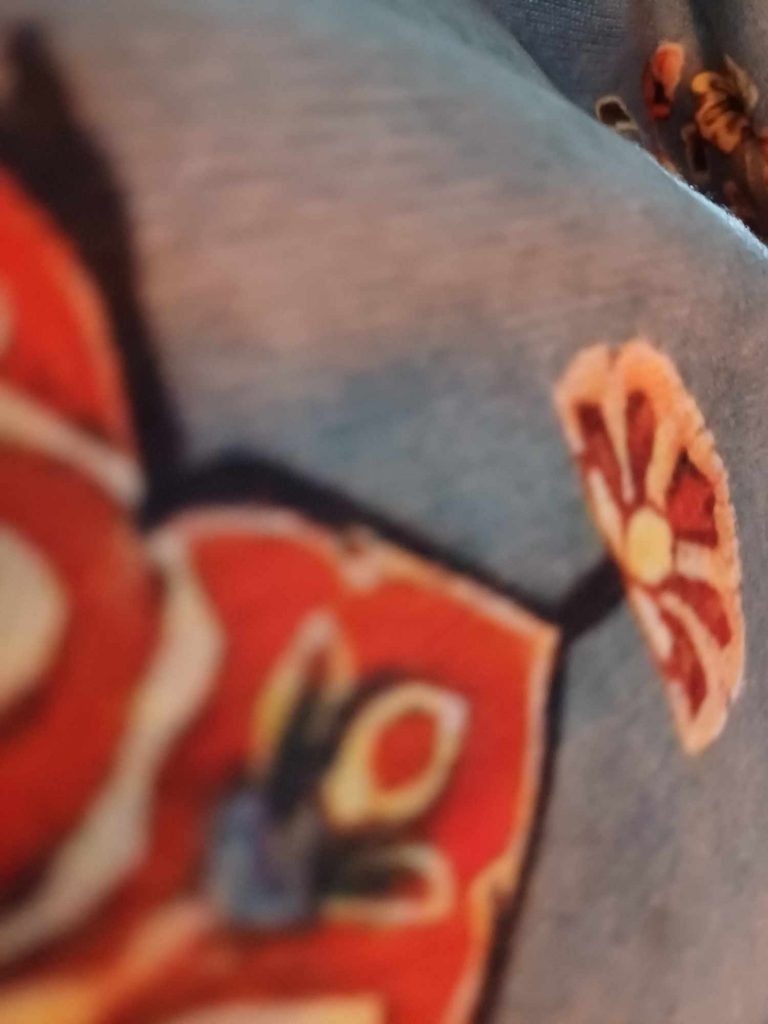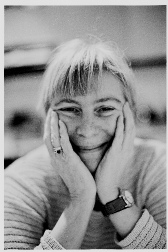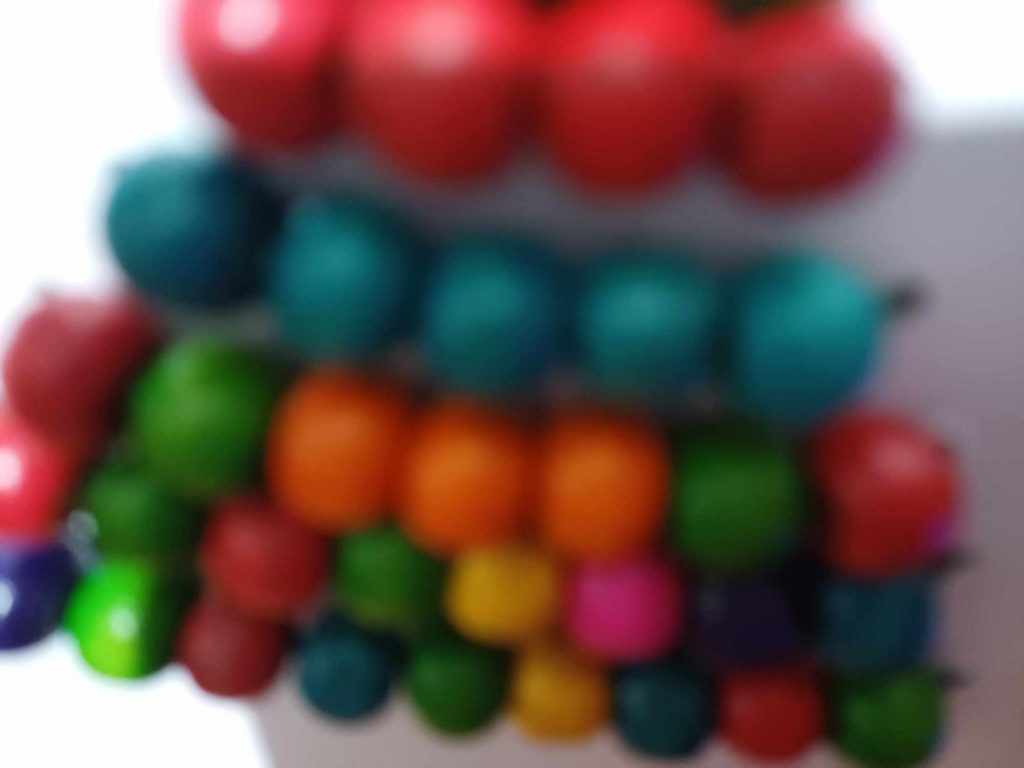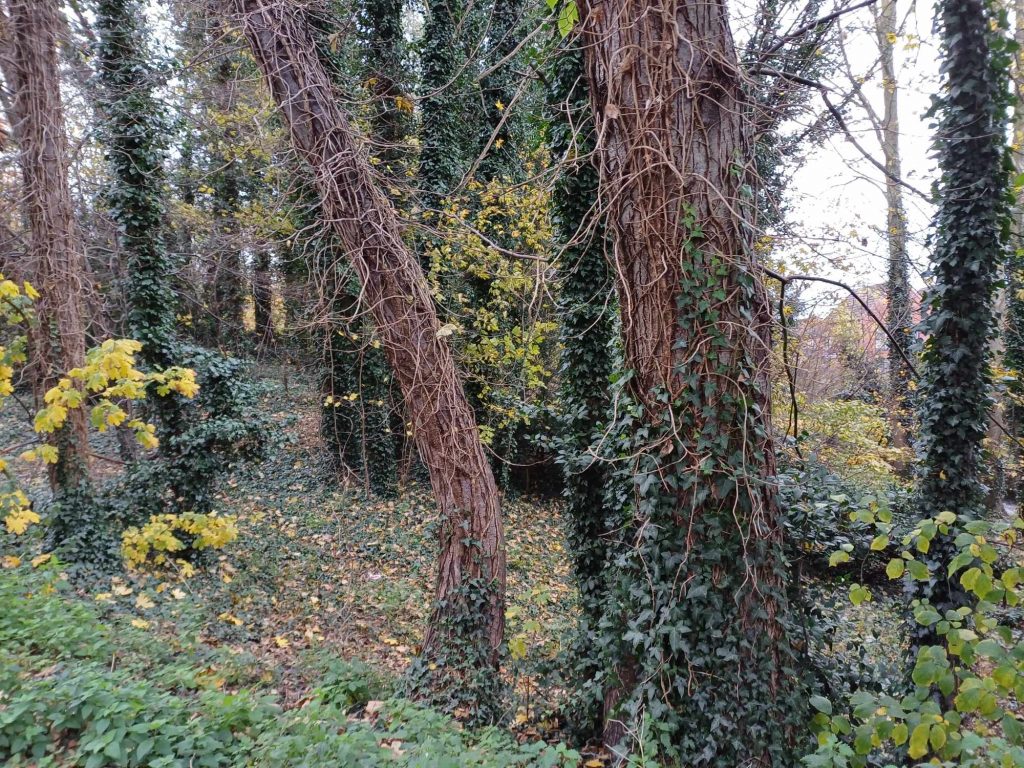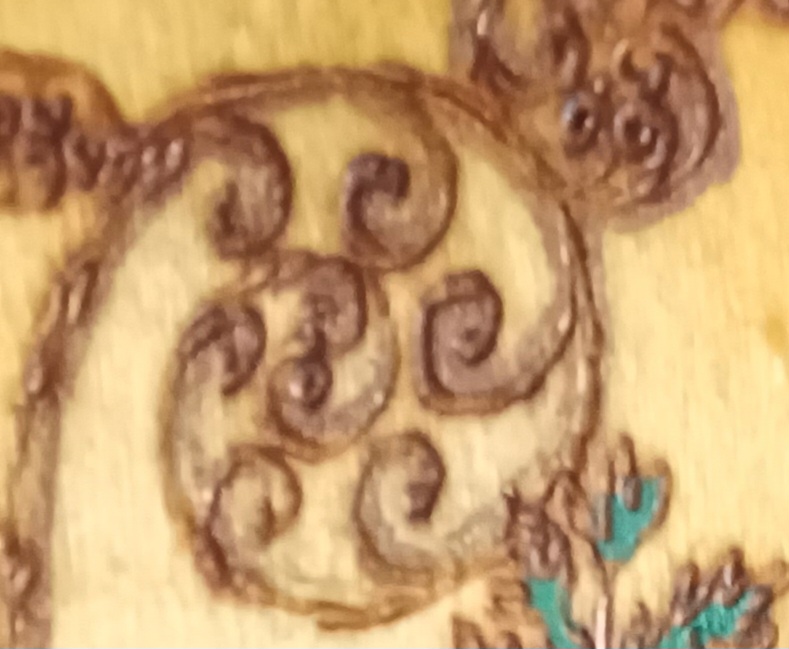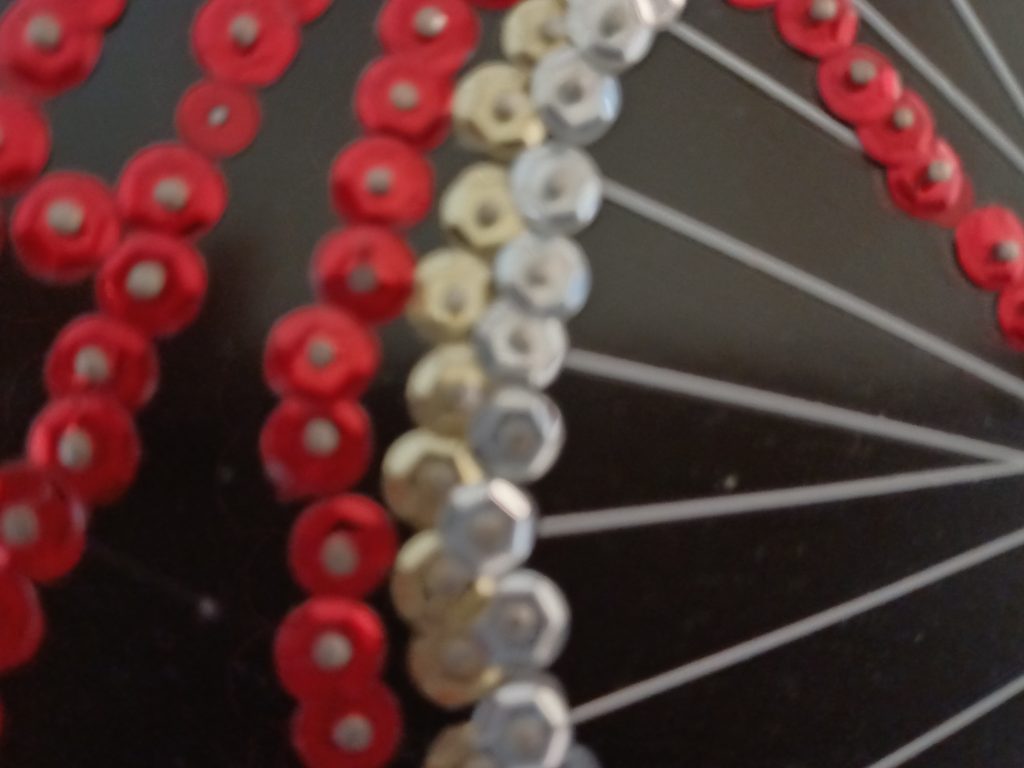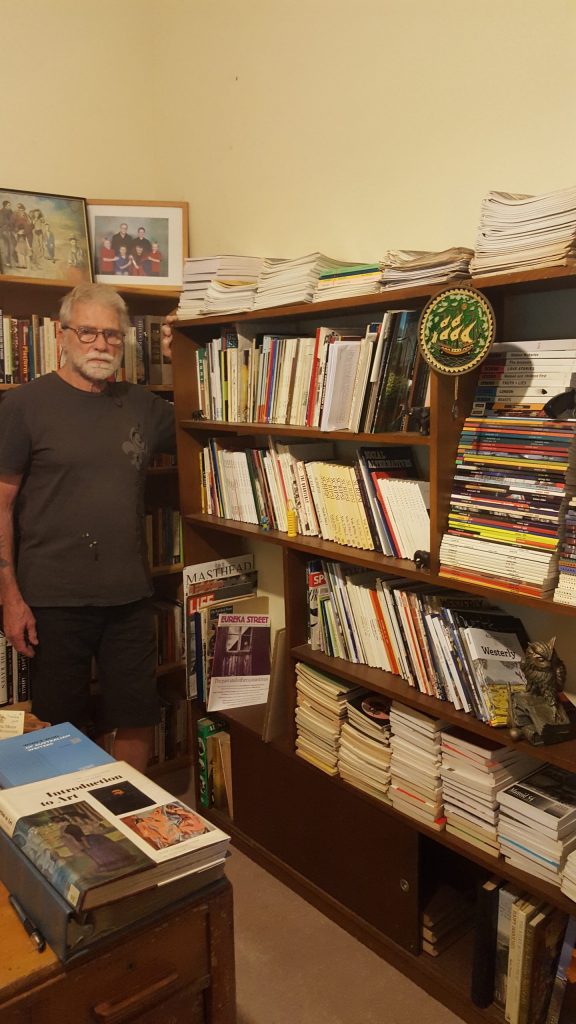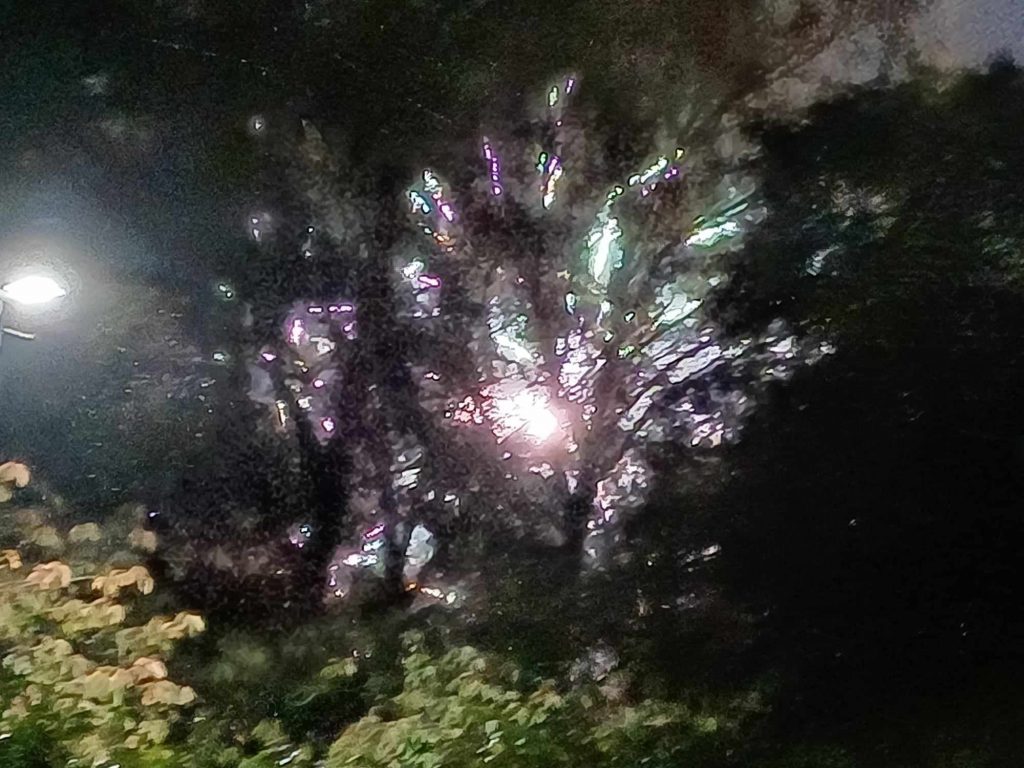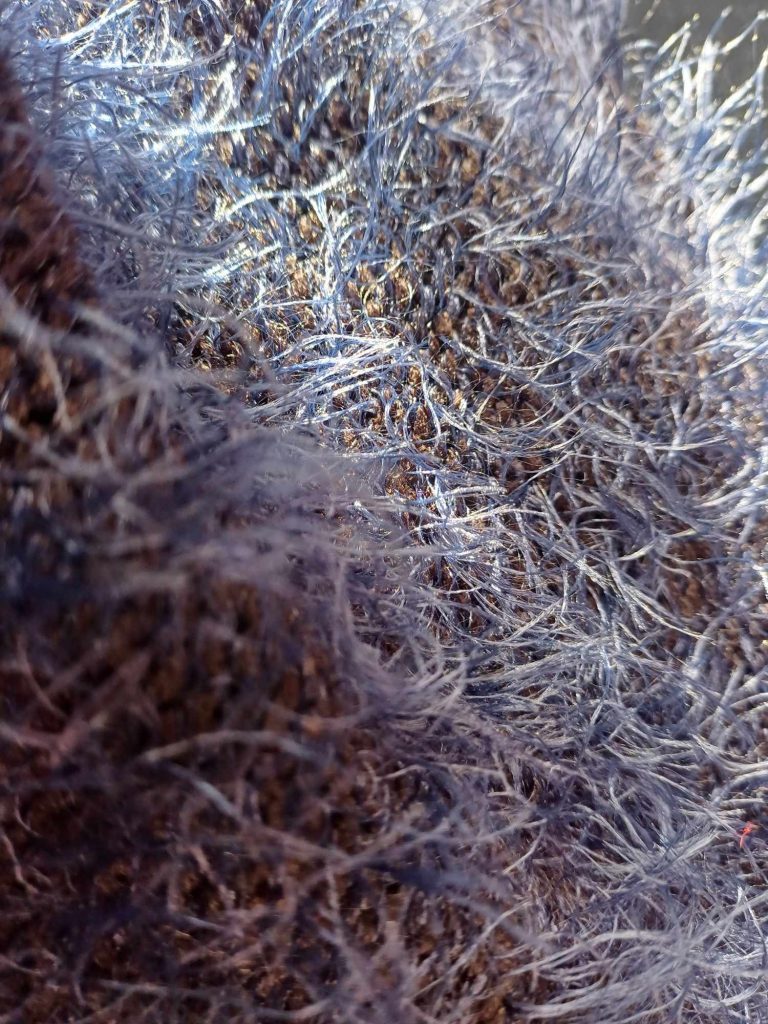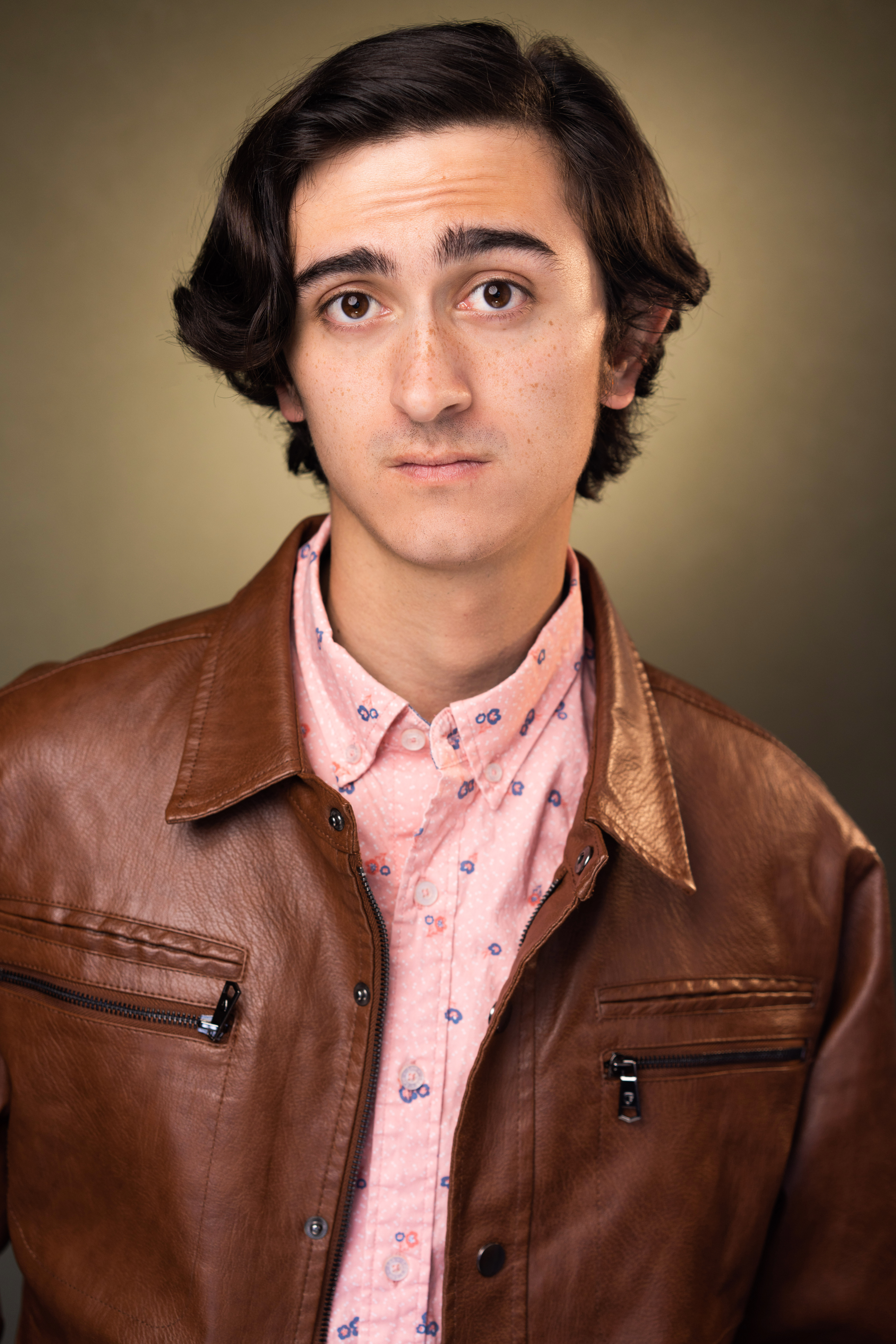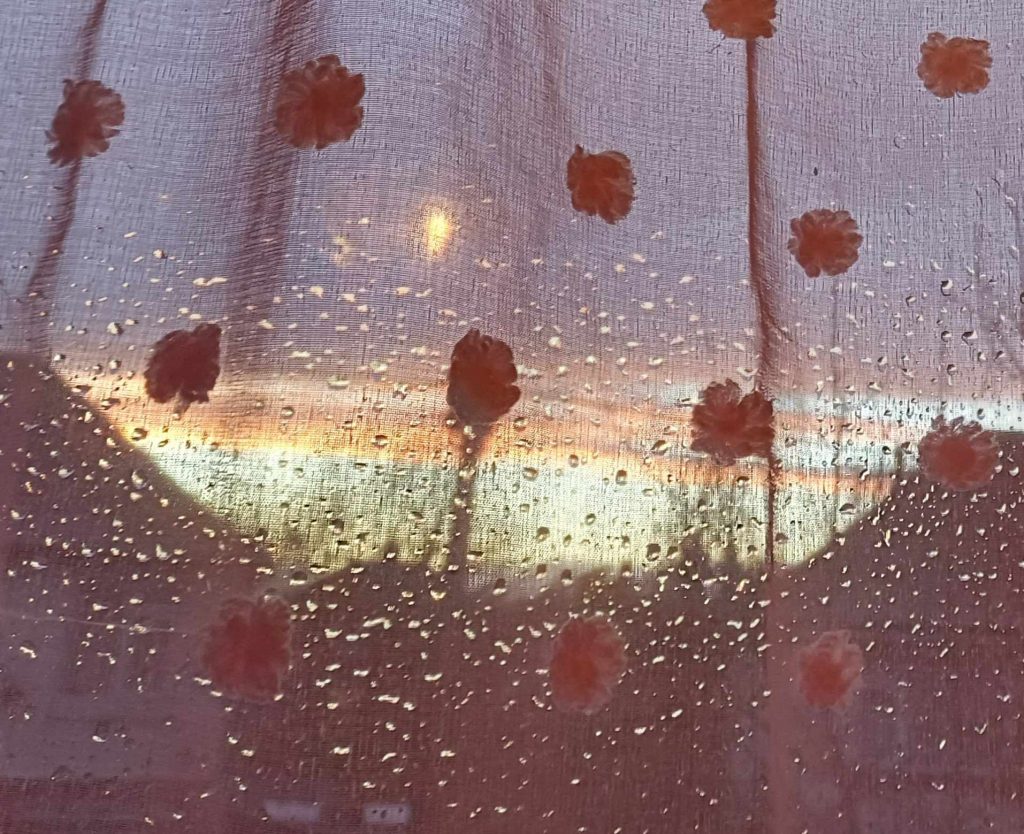
The silence of the night,
in the wake of many bullet-rent years,
is torn by the remonstrance of three stray dogs
who find no food in the garbage container,
having been emptied by junk-collectors
who would not now hesitate to consume
any available leftovers.
In the background, the festivity of a posh nightclub,
which is not very far-off,
aims at the slumberous heart
with enervating beats of folklorish drums.
This happens every Thursday, Friday and Saturday night
until the break of dawn.
Poverty and excessive wealth sit side by side
in this part of the world.
There are no West Ends or East Ends,
which only makes the contrast more flagrant.
My dog is agitated and responds with a series of barks.
I have to find a way of calming her down
or I will meet with a wave of disapprobation
from the neighbours themselves,
who will sift all other noises
and only hear my dog’s responding soundtrack.
I start stroking her coat
and her barks eventually subside,
but she remains unsettled
by both the shrieks of the nightclub
and the intermittent howls of homeless dogs.
How can I explain to friends that insomnia
has nothing to do with the intake of caffeine
or psychological strife?
Contemplation III
What is God?
I ask myself as I contemplate the interwoven clouds.
Far on the horizon, faint streaks of lightning corrugate the gloaming sky,
Ruffling my meditative stance,
for now we dread whatever can herald a storm,
which we associate with floods, earthquakes, and apocalyptic doom.
I retrieve my thoughts from the menace of apprehensiveness
that tends to dominate our current moods.
How can I paint a mental picture of a featureless Lord?
He is not supposed to possess eyes, a mouth, or a nose.
In paintings, He is depicted with a white beard
and sagaciously old.
What if He is eternal youth
and this virgin world which we have contaminated
is one of his countless words?
I like the idea of inhabiting a word.
It is simpler than the metaphysical and transcendental schools
for within each word He utters
dwells realms and worlds to roam.
Calculations
She twists every word I speak.
I decide to calculate how many words I utter
in her presence every day,
and to monitor their denotative and connotative implications.
She does not say Good Morning,
because she knows that every conversation would end
in acrimony and ill feelings.
She resurrects the past instantaneously
and blames me for every single decision
taken by my dad,
whose headstone is now twenty-two years old.
These calculations would hopefully divert my mind
from the putridity of every memory she unearths
to derail any dialogue aimed at peace-making.
I can put up with the abuse that pours into my consciousness
but the desecration of the memory of the dead,
especially that of my kind-hearted dad,
is more than I can take.
She seizes every opportunity to heap blame
on his decaying head.
On the first day, it does not work.
I wade into her lukewarm morning talk
until it gets scorchingly hot
and lava is forced out of my tongue.
It becomes so hard to keep silent
once the agitation of the nervous system sets in
and she is so good at awakening the worst in you
not even slumberous demons on narcotics
can ignore her venom.
On the second day, I succeed in shortening each argument
by five minutes
and though I cannot count the words in use,
the shortened time of the interchange
indicates the inevitable decrease.
On the third day, I begin to enjoy this test of patience;
however, the less words I use,
the more infuriated she becomes.
It is a no-win situation.
I begin to turn my thoughts inwardly
every time she starts her turbulent orchestration.
Half her words go unheard
and the lack of physiognomical reactions on my part
makes her mistake taciturnity for acquiescence
in her never-ending remonstrations.
Dr Susie Gharib is a graduate of the University of Strathclyde with a Ph.D. on the work of D.H. Lawrence. Her poetry and fiction have appeared in Adelaide Literary Magazine, Green Hills Literary Lantern, A New Ulster, Crossways, The Curlew, The Pennsylvania Literary Journal, Ink Pantry, Mad Swirl, Miller’s Pond Poetry Magazine, and Down in the Dirt.
Susie’s first book (adapted for film), Classic Adaptations, includes Charlotte Bronte’s Villette, Virginia Woolf’s The Waves, and D.H. Lawrence’s Lady Chatterley’s Lover.
You can find more of Susie’s work here on Ink Pantry.

